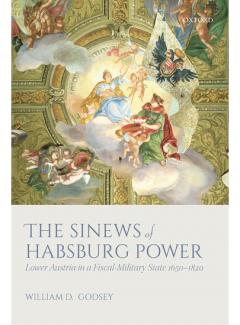The Sinews of Habsburg Power explores the domestic foundations of the immense growth of central European Habsburg power from the rise of a permanent standing army after the Thirty Years' War to the end of the Napoleonic wars. With a force that grew irregularly in size from around 25,000 soldiers to as many as half a million in the War of the Sixth Coalition, the Habsburg monarchy participated in shifting international constellations of rivalry from western Europe to the Near East and in some two dozen, partly overlapping armed conflicts. Raising forces of such magnitude constituted a central task of Habsburg government, one that ultimately required the cooperation of society and its elites.
The monarchy's composite-territorial structures in the guise of the Lower Austrian Estates ― a leading representative body and privileged corps ― formed a vital, if changing, element underlying Habsburg international success and resilience. With its capital at Vienna, the archduchy below the river Enns (the historic designation of Lower Austria) was geographically, politically, and financially a key Habsburg possession. Fiscal-military exigency induced the Estates to take part in new and evolving arrangements of power that served the purposes of government; in turn the Estates were able in previously little-understood ways and within narrowing boundaries to preserve vital interests in a changing world.
The Estates survived because they were necessary, not only thanks to their increasing financial potency, but also because they offered a politically viable way of exacting ever-larger quantities of money, men, and other resources from local society. These circumstances would persist as ruling became more regularized, formalized, and homogenized, and as the very understanding of the Estates as a social and political phenomenon was evolving.

